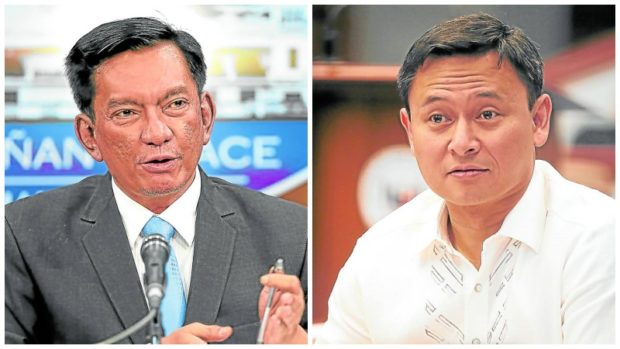Lawmakers expect era of high inflation
MANILA, Philippines — Economic developments around the world are heading to a regime of high inflation and lawmakers who will be part of the incoming 19th Congress are now looking to address difficulties that would likely emerge when the administration of presumptive President Ferdinand Marcos Jr. begins on June 30.
“Commodities will have high prices over this decade. That’s going to be a global trend,” predicted Albay Rep. Joey Salceda, an economist before he became a legislator in 1998.
Annual price inflation in many countries around the world has been rising since February. In the European Union, inflation was at 7.4 percent in April while the United States was at 8.3 percent, the fastest rise in prices since the 1980s, and this is expected to further hasten due to the Russia-Ukraine war.
Salceda noted that it was happening worldwide although the Philippines has fared “much better than much of the rest of the world,” where the global inflation rate was 9.2 percent and the Philippine rate was just 4 percent in the last quarter.
Even then, Salceda pointed out, “it’s still going to hurt, because [our] average inflation over the past 10 years is just under 3 percent. The average over this decade is going to be closer to 5 percent or more per year.”
Article continues after this advertisementExpand agriculture, mining
Salceda proposed, “the only way to balance that out is to increase our output of commodities so our farmers and domestic commodities sector benefits from high prices. That’s why expanding current output in agriculture and mining, as well as generating new output from oil and gas resources, will be crucial both for the next administration and the one after that.”
Article continues after this advertisementSalceda, who chairs the ways and means committee of the outgoing House of Representatives, maintained that a serious effort to gain more revenue from oil and gas exploration and higher mining output would be “crucial” for the country to “barrel through what is shaping up to be a high-inflation decade.”
According to the lawmaker, “one estimate says that we have as much as $26 trillion in untapped hydrocarbon deposits within our exclusive economic zone. We also have around $1 trillion in untapped mineral deposits in the country. The agricultural potential of the Philippines is also at around $112.8 billion in value-added every year if we are able to produce efficiently in our agricultural lands.”
But growth in the country’s agricultural and mining production were stunted by the economic policies of the Duterte administration as well as a series of natural disasters.
‘A lot of uncertainty’
Sen. Juan Edgardo Angara, chair of the Senate finance panel, agreed that problems will certainly arise for the next administration, but “the Philippines is going to be okay and there’s a chance that we might even be better.”
“There’s a lot of uncertainty. There’s a lot of gloom and doom,” apparently referring to economists, like former economic planning chief Ernesto Pernia, who said a Marcos victory in the last election would spell disaster for the economy.
Pernia, the first economic planner of the Duterte administration, earlier declared support for Vice President Leni Robredo.
“There are definitely clouds on the horizon, but if we have a skillful pilot who can steer us on course, we’ll be good,” Angara told the Harvard Owner/President Management Club of the Philippines on Thursday.
He noted that previous administrations also faced economic problems and made tough, highly unpopular decisions over the years “and the results can be seen clearly in the way the economy has continued to grow over the past three administrations.”
RELATED STORIES
Russia-Ukraine war: UN chief warns of global food system ‘meltdown’
Surge in prices as Putin assaults Ukraine seen threatening PH poor most
